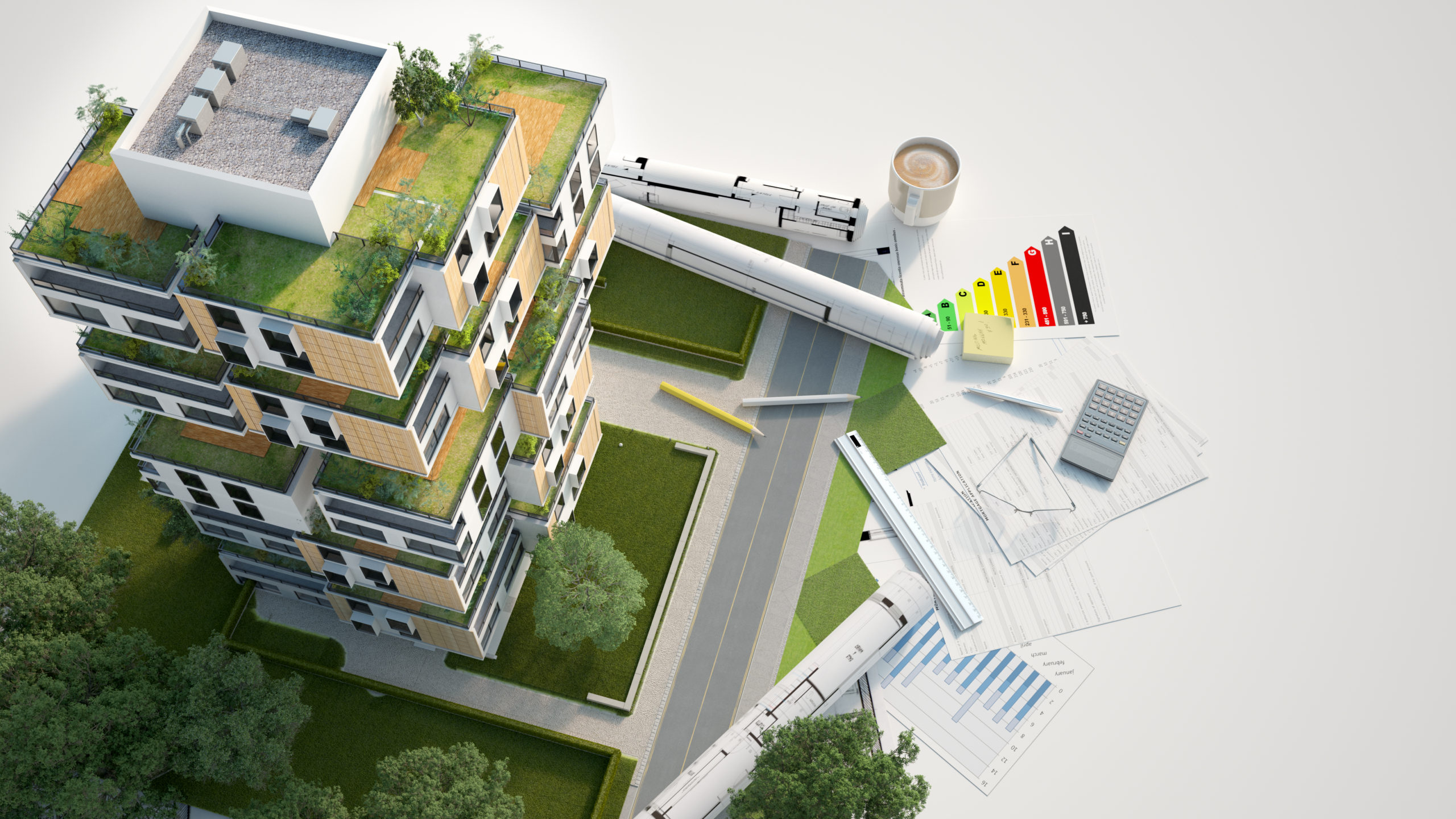The seminar included four interesting keynote speeches by industry representatives from construction sector opening their views to the transition towards more sustainable construction as well as to needs for new bio-based approaches.
Sustainability director Anne Kaiser from Saint-Gobain shared her views on the sustainability of the construction sector. Company commitment and collaboration have an important role in the way towards the carbon neutrality targets. The major trends that are seen in construction industry at the moment include carbon neutrality and climate change mitigation, circularity enabling resource efficiency as well as targets to increase health and wellbeing of people e.g. through low emission materials. Anne Kaiser also shared interesting examples about the development work Saint-Gobain is doing in collaboration with their partners.
SVP Development Miimu Airaksinen from SRV talked about the role of biomaterials in the future construction industry and pointed out the view that buildings and infrastructure have a long life span and reminded that the buildings that are built today are used by people who are not even born yet. This opens a totally new meaning for sustainability approaches.
Miimu Airaksinen also confirmed that long-term durability, low carbon, new and renewable materials are in the focus of the development in construction sector. Although commercialized biomaterials are something the sector is using, following of and participation in the development of future possibilities is interesting for construction companies as well. Possibility to tune the biomaterials at the molecular level enabling macroscopic properties is an extremely interesting future view and also opportunities offered by biotechnology are followed.
R&D Director Tuomas Hänninen from Lumir offered the audience an interesting view to the world of an SME who has commercialized unique bio-based acoustic materials. There are high requirements for building materials in fire safety, emissions, and mechanical and visual properties, and bio-based solutions have to provide at least the performance that is offered by the corresponding other solutions which are used at the moment.
Tage Johansson from THJ Business Consulting presented the regulation aspects that are steering the use of biomaterials in construction sector. There is a wide range of applications for biomaterials varying from load-bearing structures to interior materials or additives in material solutions. Market drivers supporting the wood construction include climate change mitigation, urbanisation and fire and safety regulations. Tage Johansson explained the broad group of regulations the biomaterials have to comply in construction business which is good to be kept in mind in the early stages of the development of new materials.
In addition to the keynote speeches, the seminar offered two parallel pitching sessions where academic researchers presented the development portfolio of new solutions and, on the other hand, companies shared their strategic approaches and needs for new, unique materials. Parallel sessions included presentations from Jaana Vapaavuori, Aalto University, Patrick Teuffel ,Eindhoven University of Technology, Henk M. Jonkers, TU Delft, Tuuli Kassi, Ethica, Mats Hägerström, Tikkurila and Jouko Vyörykkä, Dow Construction Chemicals.
Sector integration is something that is benefiting all. It is important to hear how the systemic change we are facing is affecting businesses, how world is changing and have partners to co-develop new solutions with. 4Recycling is targeting to enable a sustainable but profitable market for carbon-based materials. This is why 4Recycling focuses next on finalizing the RDI roadmaps for the focus area of construction sector, proceeds to identify market shaping needs of companies and to fill in the identified knowledge gaps by preparing joint RDI projects.
Join us in this interesting journey!


